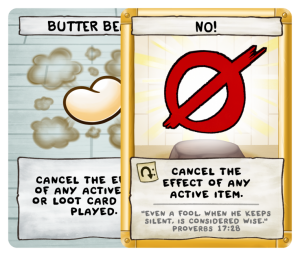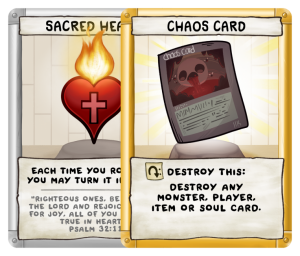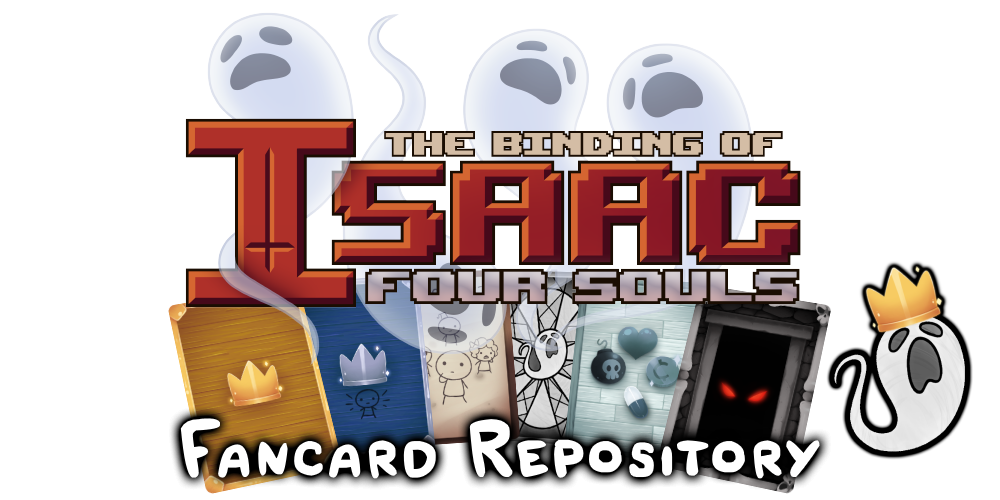Bartering Next
Souls
Fizzling
 Cards like No! and Butter Bean! can cancel effects. When something is canceled it is removed from the stack without resolving and then discarded if it is a card. This is called fizzling. It is important to note that only effects that specifically say they will cancel effects will do so. Destroying an item does not cause its effect to fizzle. Below are some common fizzles:
Cards like No! and Butter Bean! can cancel effects. When something is canceled it is removed from the stack without resolving and then discarded if it is a card. This is called fizzling. It is important to note that only effects that specifically say they will cancel effects will do so. Destroying an item does not cause its effect to fizzle. Below are some common fizzles:
Invalid Targets
Players must declare targets when playing effects. If the target leaves play or becomes untargetable for any other reason, the effect fizzles.
Condition Not Met
Some effects require a condition to trigger and/or resolve. The effect will fizzle on resolution if the condition is false. For example:
- The effect of Sacred Heart will fizzle if the dice roll is no longer a one by the time it resolves.
- The effect of Chaos Card, like any of the ‘Destroy this:’ items, will fizzle if the item is already destroyed by the time it resolves.
Attack Fizzle
If the target of your attack declaration is an active monster and it leaves play, the declaration will fizzle and the attack won’t start. You do not lose your attack (it didn’t happen) and you can simply declare another attack.
Purchase Fizzle
If the target of your purchase declaration leaves play, the declaration will fizzle and the purchase won’t happen. A purchase declaration will fizzle on resolution (be canceled instead of resolving) if you don’t have enough ¢ when your declaration resolves. In either case, you do not lose your purchase (it didn’t happen) and you can simply declare another purchase.
Leaving Combat
If a player or monster leaves an attack for any reason, any attack roll or combat damage on the stack fizzles. This can be from the player or monster dying, an effect canceling the attack, or an effect ending the turn.
Related FAQs
Attacking and Monster Slots
If I’m attacking a monster that has an effect that deals damage to me on a roll of 6 and I’m at 1HP and roll a 6 that would kill the monster, who dies first?
The monster’s triggered effect would be added to the stack and would resolve before the attack roll that would deal the final damage to kill the monster. Combat ends when either the player or monster dies, and the unresolved attack roll on the stack would fizzle when the player dies. The monster would therefore not die in this scenario even after the player does.
Ask a question
Would you like a rule clarified? Do you think you've found an edge case? Have you checked on all relative pages to ensure the question hasn't been answered already?
If so, feel free to submit a question to our Card Tzar! He may decide to edit the article to clarify the issue, or to add an FAQ to clarify your question.
Bartering Next
Souls

